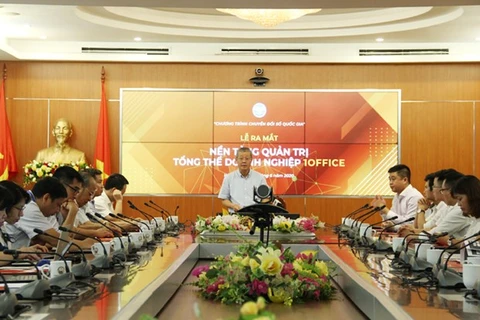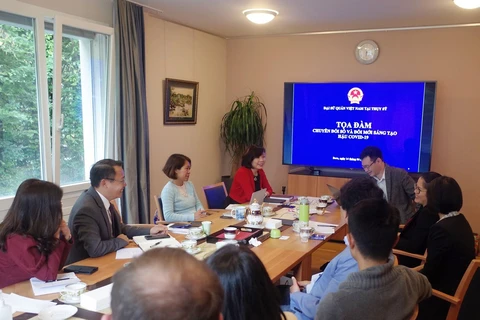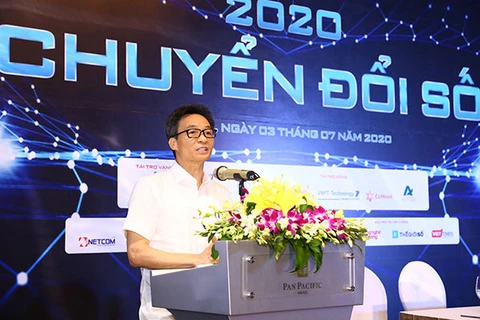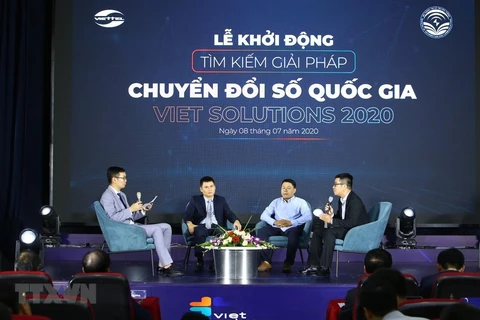Quang Ninh (VNS/VNA) - While news agencies are facing decreasing revenues from readership, advertisement and the State budget, digital transformation is required to help media survive, develop and catch up with the developments of the region and the world, said Hoang Vinh Bao, Deputy Minister of Information and Communications.
He was speaking at a seminar in Ha Long city, the northern Quang Ninh province on July 22 during which more than 200 representatives of news and advertising agencies discussed new models of media in the digital era.
He said in the era of technology, the habits of readers and audiences have changed, making traditional methods of reporting no longer attractive to readers.
According to experts, during the post-COVID-19 recovery period, digital transformation will help Vietnamese agencies and businesses find a flexible business model while cutting costs and optimising resources to overcome difficulties. For press agencies, digital transformation means using technology as the foundation to create a new business model, and from a new business model create business opportunities, generate revenues and create new values.
To survive, develop and catch up with developments of the region and the world, media agencies must focus on technology and need support from management agencies as well as telecommunications providers. Collaboration among media agencies will fight the domination of cross-border platforms like Facebook and Google, he said.
Do Cong Anh, deputy head of the Authority of Information Technology Application, said due to the COVID-19 pandemic, news agencies have faced 50 to 70 percent revenue losses. The revenue decline results in worsening content quality.
Many news agencies have tried to seek other solutions such as organising events and making content for Google and Facebook. Many have used shocking headlines to increase views and lost the trust of readers.
In the digital era, news agencies face competitiveness with big technology corporations. In Vietnam, only less than 20 percent of readers access news sites directly, while about 50 percent get access to news sources through Google search. The others access through Facebook, he said.
“News agencies own diversified sources of data, but how to effectively exploit those sources? It requires technology and digital transformation,” he told the seminar.
Le Quoc Minh, Deputy Director-General of the Vietnam News Agency, said paywalls are one of the new sources that help increase revenues.
In 2018, Vietnamplus online newspaper of the Vietnam News Agency became the first and only news agency in Vietnam to charge fees for articles. Readers pay the fees through mobile phone bills.
“Paid news is the future of media,” he said.
Le Xuan Trung, deputy editor-in-chief of Tuoi tre (Youth) newspaper, said paywalls for online newspapers are only feasible when the Vietnam Journalists’ Association support journalists in copyright protection./.
VNA

























